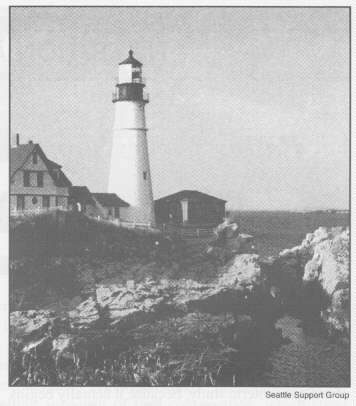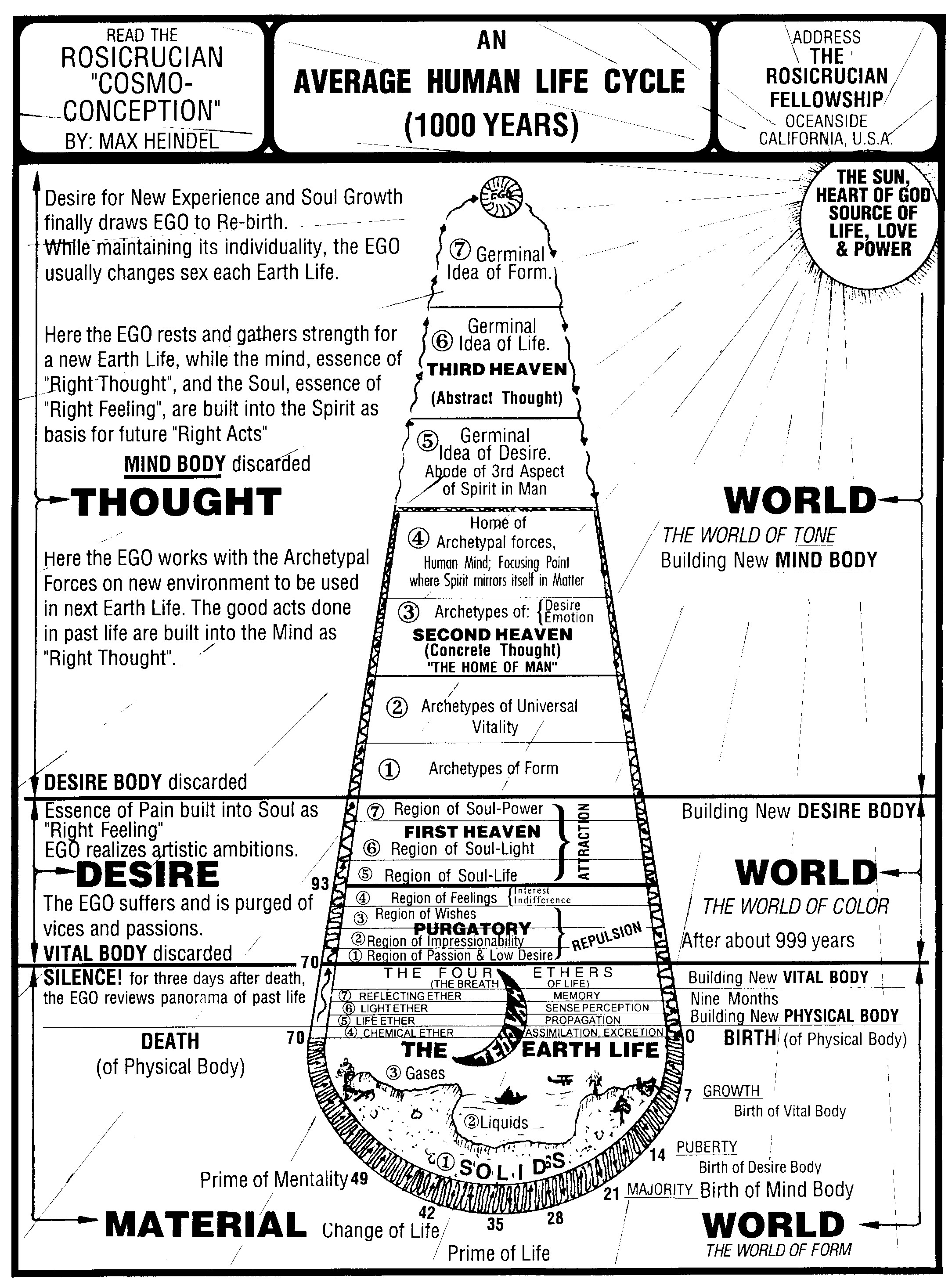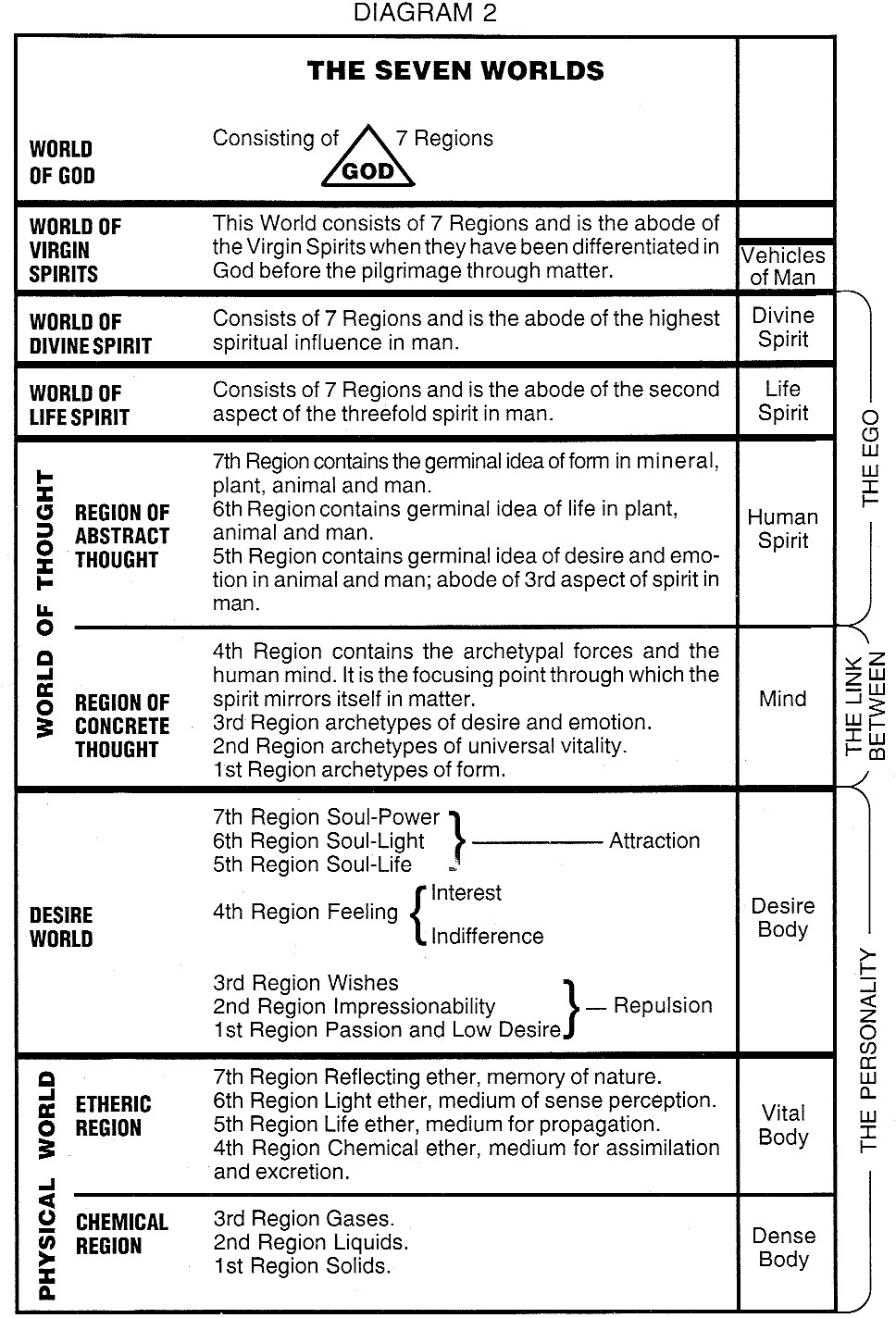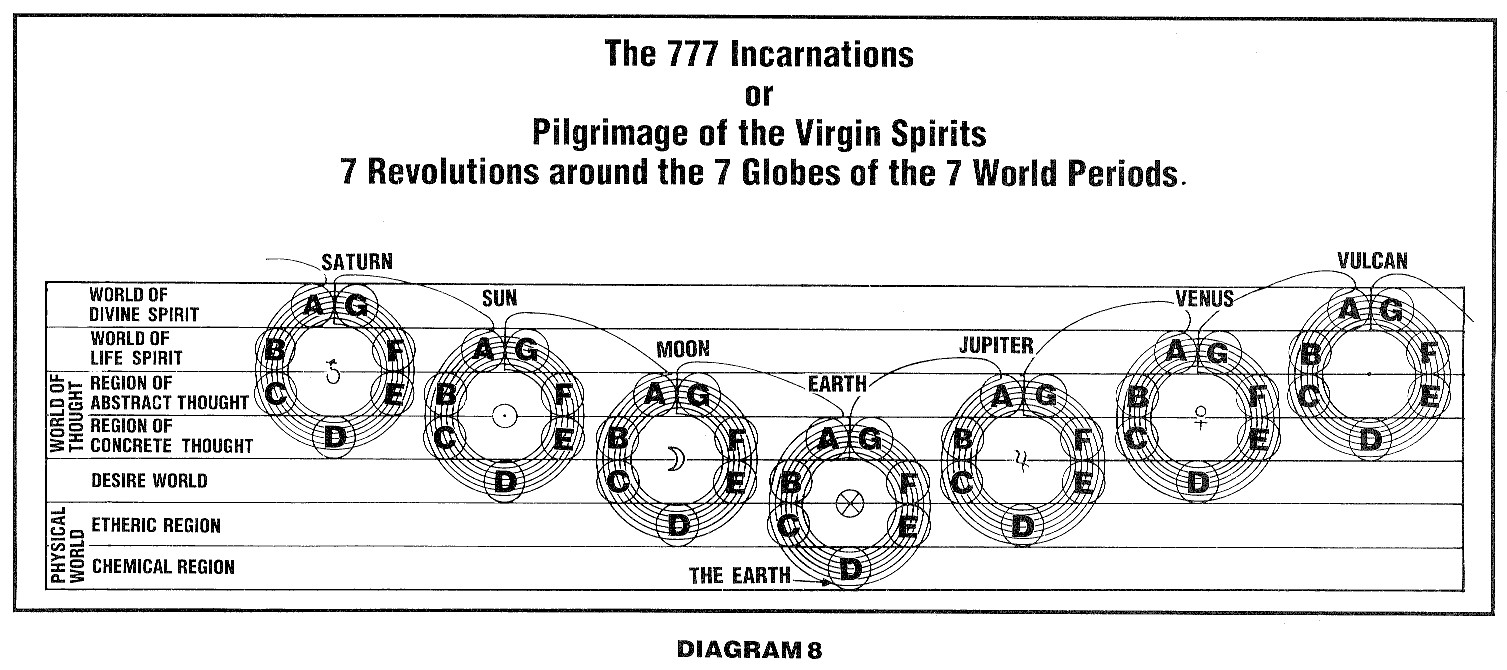
| rosicrucianU.com | ||
| Simplified Scientific Christianity |

Ask a person why he or she starts a business, and the answer would be, to make money. After all, that's the conventional wisdom. But there's a higher one: to do good, or as the book's author would more accurately put it, to do well by doing good. For along with the spiritual, the material must not be neglected if one hopes to survive.
Mr. Chappel didn't start out "to do well by doing good." The product of a New England church-related educational process, he began by selling insurance. And he did well-financially. But he wanted more freedom of self-expression. So he switched to working with his father, a successful producer of household goods. But he still felt cramped.
So he started his own business, along the same line. By now he had a lovely wife and family, a beautiful home, the respect of his peers-in a word, the American dream. Also all the freedom of action an entrepreneur could wish for. Albeit, still something was lacking.
He went to see a minister and inquired if there wasn't more to life. He talked of making "religion" his life's mission. But the Rev. Eckel cautioned him to go slow in donning the clergyman's collar. Then Mrs. Eckel chimed in, "How do you know that 'Tom's of Maine' [his corporation] isn't your ministry?"
Mr. Chappel didn't really want to hear this. Besides, how would it be done? But it was worth exploring. So, with the consent of wife Kate and the company's board, he started dividing his time between Kennebunk, Maine, location of his home and business, and Harvard Divinity School, where he studied religion and philosophy. He was especially impressed by two thinkers: the Rev. Jonathan Edwards, perhaps the leading luminary of 18th century American colonial divines, and the 20th century philosopher Martin Buber. Both theologians stressed proper relationships with others. For Tom this meant that the customer should not be primarily regarded as a source of profit, but as a person one is privileged to serve as part of the more general principle of serving others.
In a way, Tom and his wife Kate had begun moving in that direction 15 years before when they had launched a line of uniquely new products derived entirely from natural sources and entirely without harmful chemicals. It was they who had pioneered nonpolluting liquid laundry detergents and 100% natural toothpaste, later adding shampoos, rinses, soaps, lotions, and similar products which they sold to a discriminating clientèle mainly through health food stores.
Since the ingredients obviously cost more, and hence the demand automatically was more limited, they couldn't hope to compete on an "even playing field" with the long-established "giants" in the field. Another strike against them was that some of their products lacked eye or taste appeal. For instance, the "natural" toothpaste they put out without saccharin was unpleasant to the taste (as this reviewer remembers!). Though the label explained that its calcium carbonate was an unexcelled cleanser, sales dropped off, and eventually a flavor enhancer had to be added.
Tom's Harvard hiatus created in him the desire to make more constructive changes. He envisioned a company serving not only customers, but also its employees (more correctly called co-workers), suppliers, financial partners (like stockholders), the environment, the community, and government (local, state, federal). To make sure of a good start, he bought two dozen copies of Martin Buber's I and Thou and gave them to all the board members and managers and also to several of Kennebunk's clergy. Also, he persuaded his major professor from Harvard, Dr. Richard Niebuhr (brother of the better known Dr. Reinhold Niebuhr), to spend a weekend in Kennebunk, conducting a seminar on how to regenerate "Tom's of Maine."
The most important tangible result of these actions was the formulation of a "Statement of Beliefs," which Tom and company have joyfully adhered to ever since and is perhaps best summarized by its last item: their goal is "To be a profitable and successful company, while acting in a socially and environmentally responsible manner." Mr. Chappell, like many in Maine, an enthusiastic sailor, has likened his company's task to that of a boatsman navigating a swirling river: he has to steer between analysis and intuition, between the twin goals of profit and social responsibility, between "softball and hardball." He has also called his course "The Middle Way...no theory, it's a practice."
Cynics may call "The Middle Way" "way out," but they can't argue with success. At the time Tom wrote the book, sales were approaching $100 million annually. This despite competition from national giants like Proctor & Gamble and Lever Brothers, while "Tom's of Maine" was just "the new little kid on the block," catering to a limited number of customers and being a regional enterprise targeting the Northeast, Mid-Atlantic, and West Coast.
Despite all this, "Tom's of Maine" tithes on its pre-taxation earnings. Not to a church, but by supporting worthy extracurricular undertakings, like helping inner-city children, and sponsoring public television programs geared to educating the public on environmental and other vital issues. Hundreds of applications for donations pour in annually. In addition, the workers are encouraged to spend five percent of their working time on community-oriented constructive projects. So actually the company's benevolence is not just one-tenth, but more like one-seventh.
In Ecclesiastes 11:1 we read, "Cast thy bread upon the waters: for thou shalt find it after many days." The last part has been paraphrased, "It shall return buttered." There may not be a more ardent believer in this principle than Kennebunk's most successful entrepreneur. Some of his most helpful co-workers (though there is a hierarchy of command, socially all are on the same level) were found by "accident"—the good seed sown bearing fruit. He met one talented co-worker as a fellow parent at one of his children's school. Another learned of an opening from a local paper during a visit from out of state. Another had his car break down right outside Tom's office. Still another first met Tom while auditing the company.
Tom all along hoped to learn from the ancient lore of the Native Americans. One day at an environmental conference he met a clergyman from that group and was not disappointed in his impressive input.
There may not be a greater believer in the value of ethnic diversity than Tycoon Tom. Not because it is "politically correct" or due to government pressure, but because it is the right and wise thing to do. He quotes I Corinthians 12 on "diversity of gifts." He also tells of his visit to South American rain forests at the time he attended the 1992 Rio de Janeiro Environmental Conference and witnessed the tragedy of their ongoing decimation. Not only are trees destroyed but then sunlight penetrates where it previously had been perennially dark and damp, causing certain forms of life to gradually disappear, which eventually breaks the cycle of nature.
The book's author believes there is also a cycle of completeness when women and minorities can make their distinct contribution. Thus when there is an opening in the company, which at the time of this writing had 85 on its payroll, and if both a white male and someone else seem equally qualified, the latter will invariably be hired-unless, perhaps, intuition led Tom and his board to feel there might be a hidden skeleton in the closet. For intuition ranks very high with Tom. He defines it as a light bulb turning on in the brain, also as an invisible partner toiling in his behalf. He has successfully used it even in opposition to the "experts."
Along with intuition he praises the use of the creative imagination, about which he learned much from the Indians. For example, several persons sit in a circle ("the creative circle") and just talk and listen. Not only profitable ideas emerge from this, participants are also subtly drawn closer to one another, making for greater harmony in the work force.
Workers are all treated royally. Being able to put in their 40 hours in just four days is greatly appreciated. But even better is the fact that they are all like one big family. Elsewhere, when one is asked "How are you?" the standard reply, even though it may not really be true, is "Fine, thank you." At Tom's, the expected reply is the unvarnished truth, regardless how unpleasant. Thus when it was learned that one middle-aged man was dying of cancer, special efforts were taken to make his work more enjoyable. When a young wife confessed she couldn't go on much longer because her sailor-husband's long tours of duty made her terribly lonely, provision was made for her emotional support. Once the company sponsored a nutrition seminar for its employees. It is hard to imagine how the company could do more for the general public good.
Lest this review be seen as too enthusiastic, a couple of small criticisms. In a few instances the very forthright and outspoken author could have put his points across in a more restrained manner. In the Introduction's very first paragraph he states that his book "is not about New Age spirituality in the work place." But if breaking with old materialistic ways and substituting love, altruism, compassion, idealism, intuition, respect for the environment—all squarely reinforced by Biblical principles—if that isn't genuine New Age, what is?
— A Probationer
— Rays from the Rose Cross Magazine, November/December, 1995

|

|

|
|
|
Contemporary Mystic Christianity |
|
|
This web page has been edited and/or excerpted from reference material, has been modified from its original version, and is in conformance with the web host's Members Terms & Conditions. This website is offered to the public by students of The Rosicrucian Teachings, and has no official affiliation with any organization. | Mobile Version | |
|